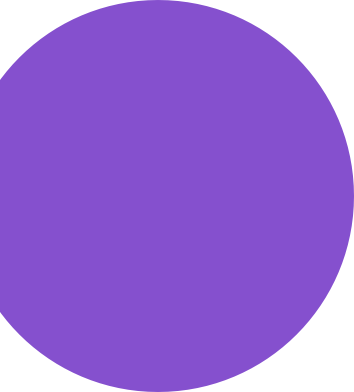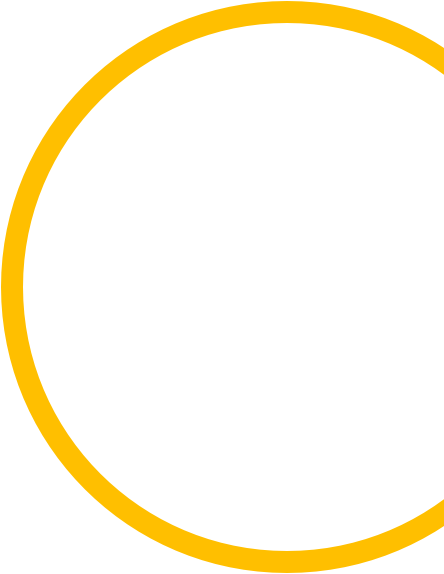As days stretch on toward the Summer Solstice this month (in the Northern Hemisphere!), it can be harder to regulate our circadian rhythms when the sun beckons us outdoors for longer. And though it’s an inherently seasonless topic, the seasonal shift in daylight hours brings sleep hygiene to the forefront of our minds. How can we prioritize sleep (for ourselves and our clients), and what tools and protocols are available to us?
Sleep is the foundation of health — and this probably isn’t the first time you’ve heard those words (the sentiment is echoed across journals, mental health, and medical health publications). There’s a strong likelihood you’ve even emphasized this to your clients and communities yourself.
Virtually every aspect of health improves with healthy sleep (and the inverse is true as well, obviously): brain function, mood and mental health, cardiovascular and metabolic health, and immune function, to name a few. It also reduces injury and accident risk. The same can be said for physical performance, exercise, and better dietary choices; good sleep is positively correlated with weight loss and weight management. And the even better news is that these things can snowball into better results — better sleep leads to better workouts; better workouts can lead to better sleep.
But why do so many people struggle with getting good sleep? According to the Institute of Medicine (US) Committee on Sleep Medicine and Research, “50 to 70 million Americans chronically suffer from a disorder of sleep and wakefulness.” The CDC reported in 2022 that about 70 million Americans are chronically sleep-deprived.
One common root cause? The conventional nine-to-five workweek structure contrasted against socially active weekends (ie, varying sleep and wake times). Sleep specialist Dr. Raj Dasgupta, a clinical associate professor of medicine at the University of Southern California’s Keck School of Medicine, told CNN that with a varied weekday versus weekend schedule, “it’s like you’re living in a state of jet lag during the work week,” and that this can lead to insomnia and a disrupted circadian rhythm.
But impacted sleep can arise from a variety of factors: structural and physiological (apnea, for example), environmental (room temperature, light, etc), and habitual (altered sleep and wake times, alcohol or caffeine consumption, exercise habits).
Poor sleep is a common, pervasive issue facing a huge swath of the population — so where do we fit into the solution? To be clear: there’s no easy fix for sleep issues (and if there were, this wouldn’t be an ongoing topic). But there are many tools and protocols available for us to look into — and implement — in our clubs and practices. Here are some highlights we’ve found that you’ll want to know about.
How to Solve Sleep Deprivation & Support Sleep Hygiene
With many underlying causes, there can be many possible solutions. Let’s review.
Sleep Tracking Devices
The first step in sorting out your sleep health is taking inventory. One of the most beloved tools in sleep tracking is the Finnish device, Oura Ring. It uses a sleep algorithm rooted in biometrics like movement, body temperature, heart rate and HRV, oxygen levels, and respiration rate to give you a sleep score and target problems that may be impacting your sleep. It also offers suggested bedtimes based on your tracking to optimize when you nod off each night. The activity tracker (for fitness and movement) also plays a role in its recommendations. The Whoop strap, Apple Watch, and certain Fitbit and Garmin devices also function as sleep trackers.
Mattress Technology
Smart mattresses have made serious improvements in recent years. If physical barriers are preventing sound sleep (temperature, elevation, etc), Eight Sleep might be able to help. The Pod 3 mattress cover uses water to cool or heat the mattress based on optimal body temperature. Their latest innovation (Pod 4 Ultra) also combines a base that can adjust your sleep incline to reduce snoring. The Sleep Number i8 smart bed adjusts firmness based on your movement, thermoregulates, and also delivers a sleep score to your phone.
Huberman Protocol
Popular podcaster and associate professor of neurobiology and ophthalmology at Stanford, Andrew Huberman, shares a 12-step protocol for sleep hygiene that comprises numerous medically recommended tips for a healthy circadian rhythm and sleep schedule. Get the full summary on his site here, but in brief:
- Get sunlight within 30-60 minutes of waking
- Keep a consistent wake schedule; go to bed when you’re sleepy
- Avoid caffeine 8-10 hours before bedtime (10pm bedtime = 12pm caffeine cut-off)
- Try the Reveri app for sleep hypnosis
- Avoid bright light between 10pm and 4am
- Limit naps or don’t nap at all
- Try NSDR protocol for night-waking
- Consider certain sleep supplements, like magnesium
- Expect alertness 1 hour before bedtime
- Keep your room cool and dark
- Avoid alcohol and sleep medications if you can
- Adjust your protocol over time depending on your needs
Brecka Protocol (10-3-2-1-0 Rule)
Gary Brecka’s protocol echoes many of the tips from the Huberman protocol (and many sleep protocols across the board). He also emphasizes not working from bed, so as to psychologically designate the bed as a place for rest and rejuvenation.
- 10 hours before bed: stop consuming caffeine
- 3 hours before bed: stop eating and drinking (specifically alcohol)
- 2 hours before bed: stop working
- 1 hour before bed: stop screen time; shut off phone, TV, computer
- 0: the number of times you hit the snooze button
Unlearn the “Sleepless Elite” Mindset
Similar to the other coaches and experts, Certified Sleep Science Coach Chris Brantner suggests unplugging, avoiding caffeine and alcohol, and regulating work hours — but he raises an excellent point when it comes to your mindset around sleep.
“Many high-powered types—CEOs, entrepreneurs—claim to thrive on five or fewer hours a night,” he writes. But “the idea of a ‘sleepless elite’ is bogus … In fact, very few people can get by on short sleep.” Citing one of the world’s leading sleep experts, Dr. Matthew Walker, a neuroscientist at the University of California, Berkeley, shares that “Less than 1 percent of the population can survive on six hours or less. In fact, recent research out of Penn State University’s behavioral health department suggests eight hours may not be enough.”
Some of your clients may live by the idea that getting by on little sleep gives you a badge of honor — this is where you can help.
Some facts you can borrow for your next chat with any clients skimping on sleep time: "Quality sleep plays a crucial role in maintaining optimal mental health and well-being,” says Ana Marie from Sleep Me. “During sleep, the brain processes and consolidates information, helping to improve memory, learning, and emotional regulation. Lack of sufficient sleep can lead to a range of mental health issues, including anxiety, depression, irritability, and difficulty concentrating. Studies have shown that individuals who experience chronic sleep deprivation are more likely to develop mental health disorders. Therefore, prioritizing adequate sleep is essential for maintaining a healthy mind and body."
How Will You Incorporate Sleep Health?
We’re excited to see how sleep will continue to play a role in your clubs and practices. It can be anything from conversations in your day-to-day coaching, all the way through to luxury-tier packages, like Equinox’s new $40,000 membership aimed at longevity.
Optimize by Equinox is a personalized, tailored-to-you bespoke health program comprising nutrition, massage therapy, personal training, and — you guessed it — sleep coaching. Their partnership with Function Health will allow them to test members of this top-shelf program for 100 different biomarkers in addition to Equinox’s own tests (like VO2 max, strength tests, mobility, and movement). A plan is derived from the test results, and executed by the nutritionist, trainer, massage therapist, and sleep coach.
While your clients might not be the right fit for a full state-of-the-art longevity program, they may benefit from some education around supplements and sleep-supportive micronutrients — or an evening Yin Yoga or Yoga Nidra class offering at your club that could help prepare members of your club for sleep after a stressful day. Let us know how you’ll incorporate sleep health into your practice! Send us an email to share your club’s story, and your plans to help your community get some shut eye.
—----------------------------------------------------
Industry Happenings:
Upcoming Events:
- Atlanta MANIA® Fitness Pro Convention, July 19-21, 2024, Atlanta, Georgia
- Perform Better 3-Day Functional Training Summit, August 1-3, 2024, Los Angeles, California
- canfitpro Global Conference & Trade Show, August 7-10, 2024, Toronto, Canada
- The Fit Expo, August 17-18, 2024, Anaheim, California
- Dallas MANIA® Fitness Pro Convention, August 23-25, 2024, Dallas, Texas
- Annual Wellness Summit, August 26-29, 2024, Chicago, Illinois
—-------------------------------------------------------------------------------------
Upcoming Workshops in June and July:
- 20+ workshops from Peak Pilates
- 20+ workshops from Spinning®
- 8 workshops from TRX®
- 7 workshops from Oxygen Advantage
- 5 workshops from U-Jam
- 4 workshops from Mike Boyle's CFSC
- 2 workshops from Gray Institute
- 1 workshop from SoulBody Fitness
- 1 workshop from SparkPro
- 1 workshop from StriveLife
—----------------------------------------------------
Industry News:
- Eight Sleep Appoints Dr. Andrew Huberman, Dr. Matthew Walker, and Dr. Peter Attia to Its Scientific Advisory Board.
- Total U.K. gym memberships are at 10.7 million, up 4% from 2021.
- Hyatt and Peloton have partnered to reward loyalty members for wellbeing.
- Alo Moves created an immersive experience with a new set of mixed-reality, volumetric 3D classes.
- 24 Hour Fitness and SH1FT announce two new fitness programs.
- Hydrow and PBS have teamed up to create a docuseries starring Shailene Woodley, Martha Stewart, and more.
- WHOOP announced their global partnership with Cristiano Ronaldo.
—----------------------------------------------------
Thanks for Reading!
This newsletter was brought to you by Kathie Davis, Peter Davis, Ravi Sharma, Dominique Astorino, and the Inspire360 team.
—----------------------------------------------------
A Note from Peter & Kathie
The industry is changing rapidly and we are here to help you sift through all the noise and get to the good stuff. Every month, we'll bring you trending topics and the inside scoop that we believe is paramount for fitness professionals to know.
Keep Inspiring,
Peter & Kathie Davis

